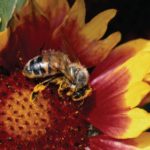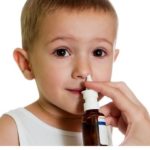REGISTER FOR ONLINE COURSES>
READ THE AAOA TODAY>
LATEST FROM THE AAOA
What is an Allergy?
 Allergy is a condition, often inherited, in which the immune system of the affected person reacts to something that is either eaten, touched, or inhaled that doesn’t affect most other people. The patient’s immune system reacts to this substance. Read More>
Allergy is a condition, often inherited, in which the immune system of the affected person reacts to something that is either eaten, touched, or inhaled that doesn’t affect most other people. The patient’s immune system reacts to this substance. Read More>
NEW FROM THE JOURNAL
What is an Allergy?
 Allergy is a condition, often inherited, in which the immune system of the affected person reacts to something that is either eaten, touched, or inhaled that doesn’t affect most other people. The patient’s immune system reacts to this substance. Read More>
Allergy is a condition, often inherited, in which the immune system of the affected person reacts to something that is either eaten, touched, or inhaled that doesn’t affect most other people. The patient’s immune system reacts to this substance. Read More>
ADVOCACY UPDATES
What is an Allergy?
 Allergy is a condition, often inherited, in which the immune system of the affected person reacts to something that is either eaten, touched, or inhaled that doesn’t affect most other people. The patient’s immune system reacts to this substance. Read More>
Allergy is a condition, often inherited, in which the immune system of the affected person reacts to something that is either eaten, touched, or inhaled that doesn’t affect most other people. The patient’s immune system reacts to this substance. Read More>
ALLERGY UPDATES
What is an Allergy?
 Allergy is a condition, often inherited, in which the immune system of the affected person reacts to something that is either eaten, touched, or inhaled that doesn’t affect most other people. The patient’s immune system reacts to this substance. Read More>
Allergy is a condition, often inherited, in which the immune system of the affected person reacts to something that is either eaten, touched, or inhaled that doesn’t affect most other people. The patient’s immune system reacts to this substance. Read More>
NEWS
EDUCATION
 Codes/Guidelines
Codes/Guidelines
CMS Announces Changes in MACRA Implementation Timeline. The Centers for Medicare and Medicaid Services (CMS) announced major changes to the implementation of the Medicare Access and CHIP Reauthorization (MACRA). Read More>
 2017 Interactive Course
2017 Interactive Course
Course directors, Christine Franzese and Sarah Wise, are excited to announce the 2017 AAOA Interactive Allergy and Rhinology Course. Read More>
 Updated Course
Updated Course
Once again Drs. Damask and Parker will lead the faculty for our annual Advanced Course in Allergy & Immunology that builds on the Basic Course and delves further into allergy diagnosis, management, and treatment. Learn More>
PATIENT CORNER
 Pharmacotherapy
Pharmacotherapy
Medications can frequently control allergy symptoms. These may include antihistamines, decongestants, prescription nasal sprays, leukotriene inhibitors and other types of products. Read More>
 Avoidance
Avoidance
The first most basic treatment step, once an allergen has been identified, is to eliminate or avoid contact with it, if possible. Unfortunately, avoiding some allergens (such as dust, molds, and animals) is often difficult and thus allergen avoidance alone may not be effective. Read More>








